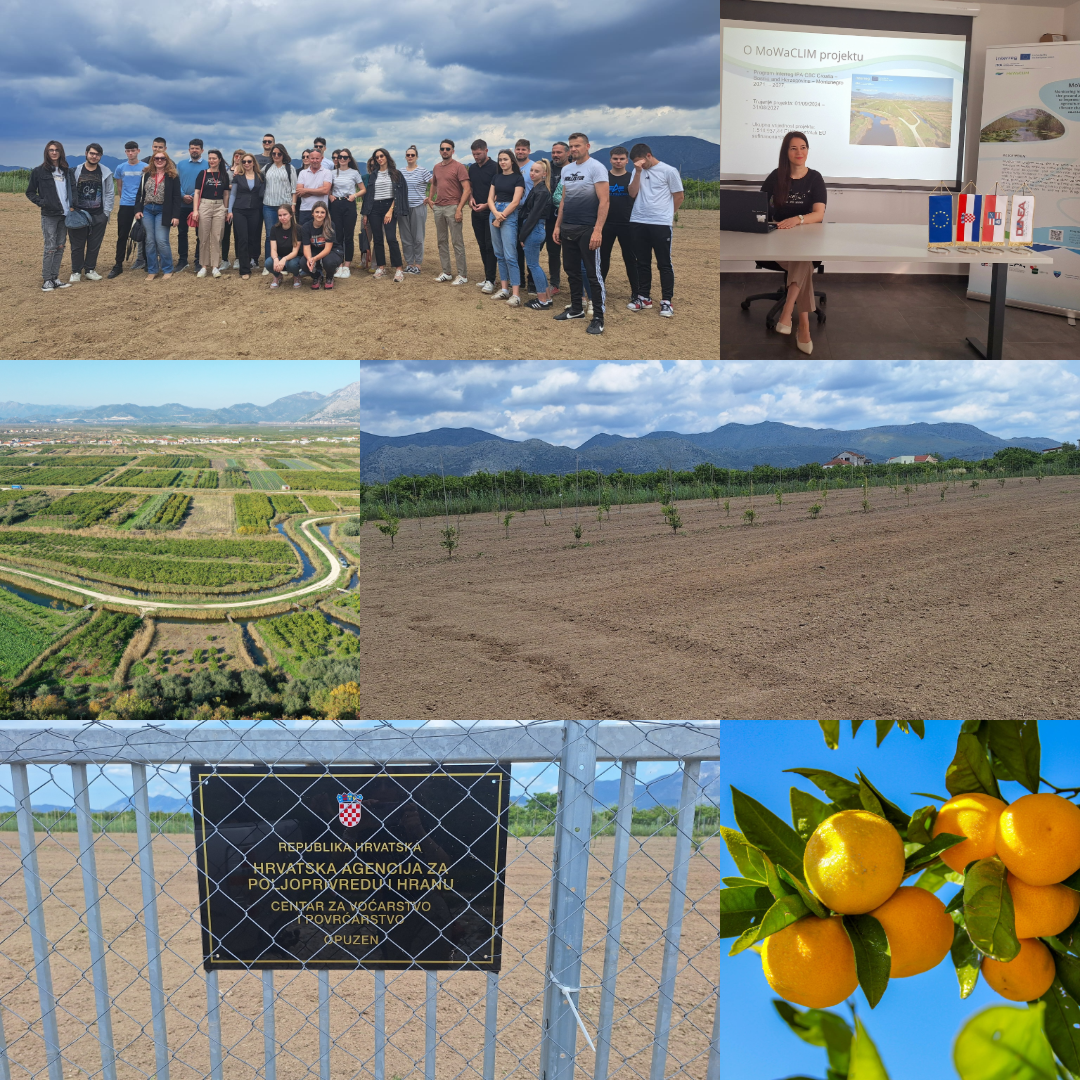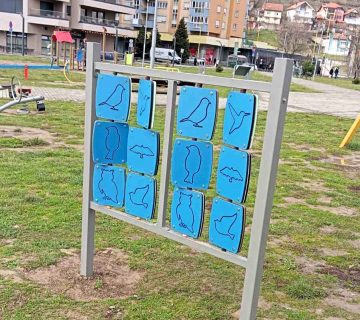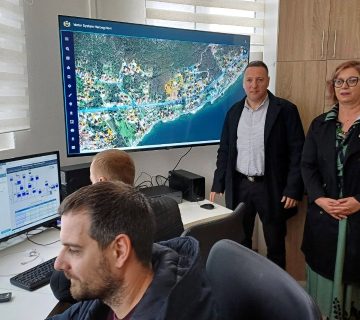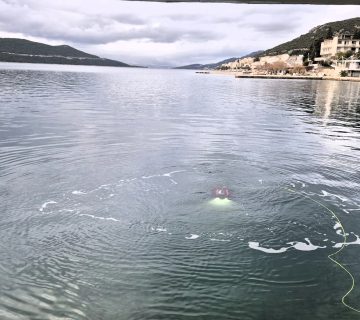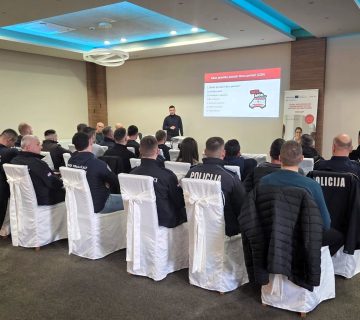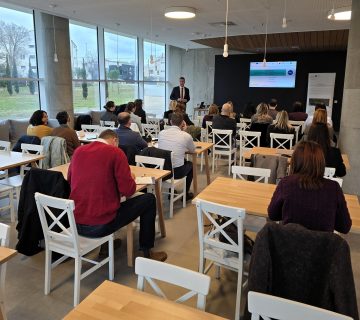As part of the Info Day event “EU Projects for Sustainable Progress and Competitiveness in the Dubrovnik-Neretva County”, students from the Secondary School of Agriculture and Technology in Opuzen, agronomy students from the University of Split, and other visitors had the opportunity late last week to learn more about the MoWaCLIM project, which focuses on helping agriculture adapt to climate change.
Special attention was given to the newly established experimental field in Crepina, where both existing and new citrus varieties are being grown and tested. The goal is to identify varieties that can better withstand changing climate conditions and contribute to long-term sustainable production—especially mandarins, for which this region is widely known.
The Neretva Delta, the largest river delta in Croatia, is one of the country’s most important agricultural regions, often referred to as “Croatia’s California.” However, its vast potential is increasingly under threat from climate change. Rising soil salinity, shifting groundwater levels, and prolonged dry periods are creating serious challenges that MoWaCLIM project aims to address.
One of the key project activities is the development of a free mobile and web application for monitoring the quality of surface and groundwater. The app will provide real-time data on temperature, pH, chloride and nitrate levels, and other important parameters—giving farmers a practical tool to make better-informed decisions in the face of frequent droughts and salinization.
MoWaCLIM also includes cross-border monitoring in Croatia and Bosnia and Herzegovina, providing broader scientific and practical insights into the impact of salinization and climate change on agriculture.
 Jems
Jems